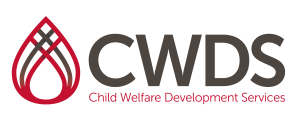CWDS Curriculum
Power and Authority in Child Welfare – Know it, Use it, Share it
Level: Supervisor
Credits: 6
Intended Audience: Child welfare supervisors
Description of Course: CSWs maintain a level of authority by virtue of their role working with clients. Their power differential can assist in engagement or result in reactance. Sometimes the CSW uses their role in an authoritative way and sometimes it’s used in an avoidant type of way. This course will consider the impact of one’s cultural identity in claiming (or resisting) their power and authority, and practice strategies to effectively integrate into the engagement process to reach better outcomes. Because this is a course for supervisors, we’ll not only look at how SCSWs can teach and coach and train their staff in assuming appropriate leadership, but also the process by which the SCSW him/herself resists or claims this dynamic through the parallel process. Self-assessments will be reviewed to determine four different communication styles and the impact on using power. Ethical dilemmas will also be discussed, as well as suggestions for appropriate supervisory interventions.
The processes used in this workshop are approximately 20% lecture & large group discussions, 20% skills practice, 45% small group discussion & activity, 15% individual reflection and assessment.
Intended Objectives:
- Review the stages of team development
- Identify the values and challenges of collaborative teams
- Recognize the value of power and authority in parallel relationships
- Define the terminology and clarify the impact of cultural identity on its use & understanding
- Acknowledge common ethical dilemmas and clarify the link with the use of power and authority
- Self-assess use/comfort of power and authority
- Review staff engagement strategies to share authority and empower an effective team (including mirroring, parallel process, here and now)
- Understand the implication of parallel process regarding power and authority
Topics Include:
- Sources and Bases of Power
- The difference between power and authority
- The components of power & authority within a collaborative relationship
- Practice principles for CSWs and how supervisors can monitor & support & coach
- Impact of culture on effective communication
- Ethical dilemmas
Supervision and Management



